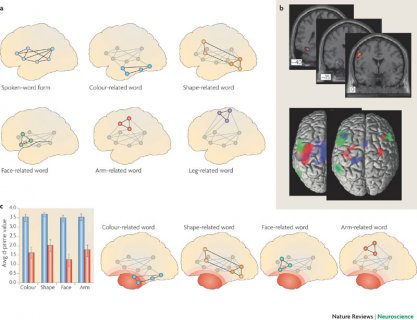
Semantics deficits language
Cognitive psychology is well-known for attempting to use individual cognitive – and SPECIFIC – failures as catalysts for larger discussions about the structure of processes critical to human rational thinking.
Attached is a power point presentation I created as an undergraduate after reviewing numerous case studies. It summarizes my own commentary re: both the case studies per se and the theoretical stakes of this problem-set.
Category-specific semantic deficits represent a research area that is rich if theoretically challenging. An individual’s inability to reproduce highest-order semantic categories despite manifestly “knowing” features and/or qualities of a particular animal (for instance) may shed light on how semantic knowledge of categories is both organized (structurally) and/or functions (as a set of individual processes within a larger process).
Case studies of category-specific semantic deficits center around the basic question ‘how is conceptual knowledge organized?’
Cognitive Neuropsychology attempts to answer Q1 by examining cases of individuals who seem disproportionately impaired at naming, defining, and/or characterizing members of a given category, and do not exhibit similar deficits in other categories. (e.g. S can’t name any x’s that are animals, but can name all other x’s of category )
Cognitive scientists can accurately predict the cause and nature of cases of category-specific impairments, then a theoretical backdrop for a cognitive theory of conceptual knowledge could emerge
You might also like









